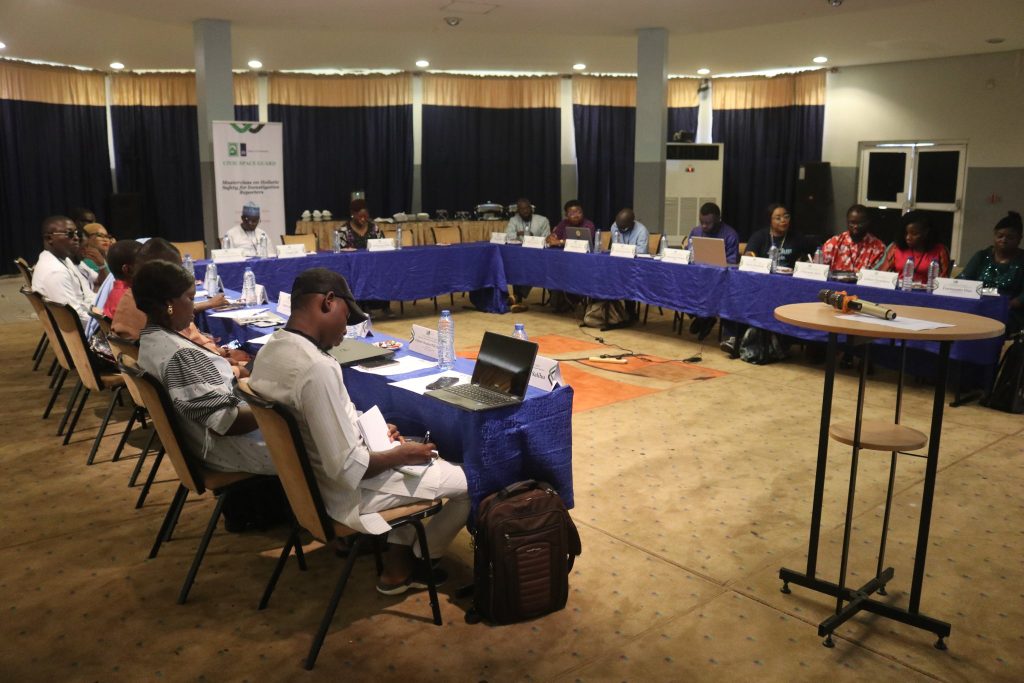By Halimah Olamide
Stakeholders have highlighted the need for risk management as well as ethics to be adopted in investigative journalism.
This was the topic for examination at the 2-day MasterClass on Holistic Safety for Investigative Reporters organized by the Wole Soyinka Center for Investigative Journalism (WSCIJ),WSCIJ in Abeokuta.
The Founder of the centre and Publisher of Premium Times, Mr. Dapo Olorunyomi, speaking on the topic, “Managing the thin line between Risk and Ethics in Journalism”, stated that a professional journalist should abide by the ethics of journalism.
According to him, while embarking on high-risk journalism practices, investigative journalists must consider individual vulnerabilities and analyse team vulnerabilities, including lack of training, experience, or support.
“They must review digital vulnerabilities, like insecure communication channels or poor cybersecurity practices. He explained that thorough research on the political climate, cultural norms, recent press incidents, and training is important to make sound decisions, better preparedness, and journalists’ safety in hostile environments.
“Every profession is not defined by its length of training. It is defined by its ethics. Hence, a professional journalist abides by the ethics of journalism.”
Meanwhile, the Chief Executive Officer, WSCIJ, Mrs. Motunrayo Alaka, added that providing solid evidence is critical to winning libel cases as well as the subject of such stories.
In the same vein, the Publisher, PR Nigeria, Yushau Shuaib, harped on investigative journalists being objective and ethical in the line of duty.
He highlighted some measures to take in minimising risks as an investigative journalist stating that as journalists, in any aspect of journalism, responsibility and ethical principles must be adhered to.
He said this is because responsible journalists must promote trust, credibility, and public understanding to ultimately contribute to a well-informed citizen.
“Their duty is to uncover hidden information, hold powerful entities accountable, and expose wrongdoing and unethical behaviour while presenting complex issues in compelling and clear narratives.
“Investigative journalists must verify information, maintain objectivity and professionalism, seek legal guidance and develop exit strategies to minimise risks while engaging with law enforcement. In the line of duty, while engaging with law enforcement, investigative journalists must establish relationships with law enforcement agents.
“To minimise risks, reporters must disclose their identity, choose safe locations and understand their rights. In any brand of journalism, we must be responsible, and adhere to ethical principles because responsible journalism promotes trust, credibility, and public understanding to ultimately contribute to a well-informed citizen.” He said.
Additionally, Yusuf Alli, an ace investigative journalist, noted that journalists should not shy away from libel cases, pointing out that one way to win such a case is to prove the integrity and falsehood of the claims.
However, according to him, this does not give a license to write recklessly.
Speaking further, he stated that functioning well as a journalist requires being conversant with the basic laws that bind the profession.
According to Alli, “The media is not isolated from the society it operates. An investigative journalist should be guided by the ethics of the job.
“When you maintain your ethical ground, it will set you apart.”


